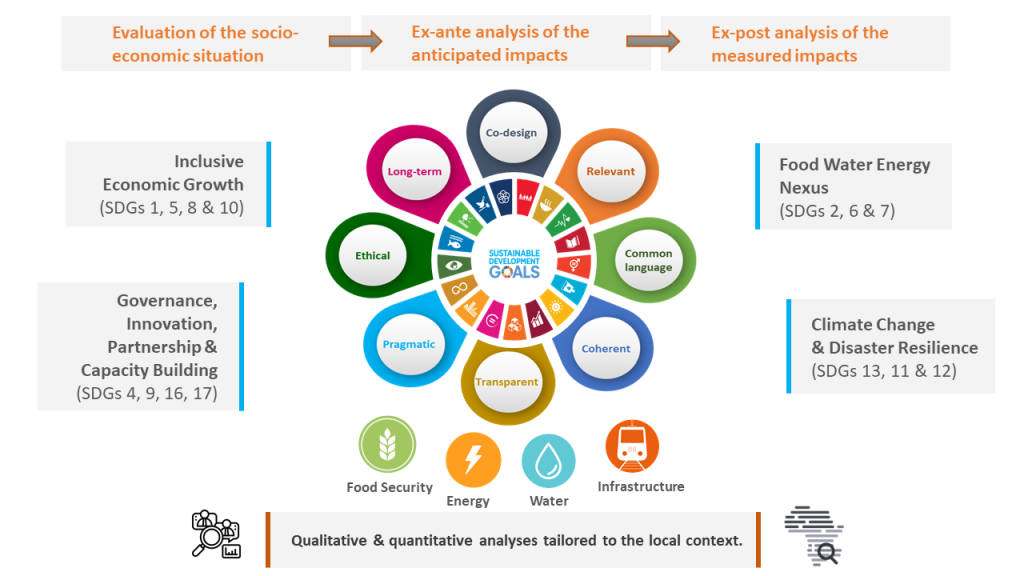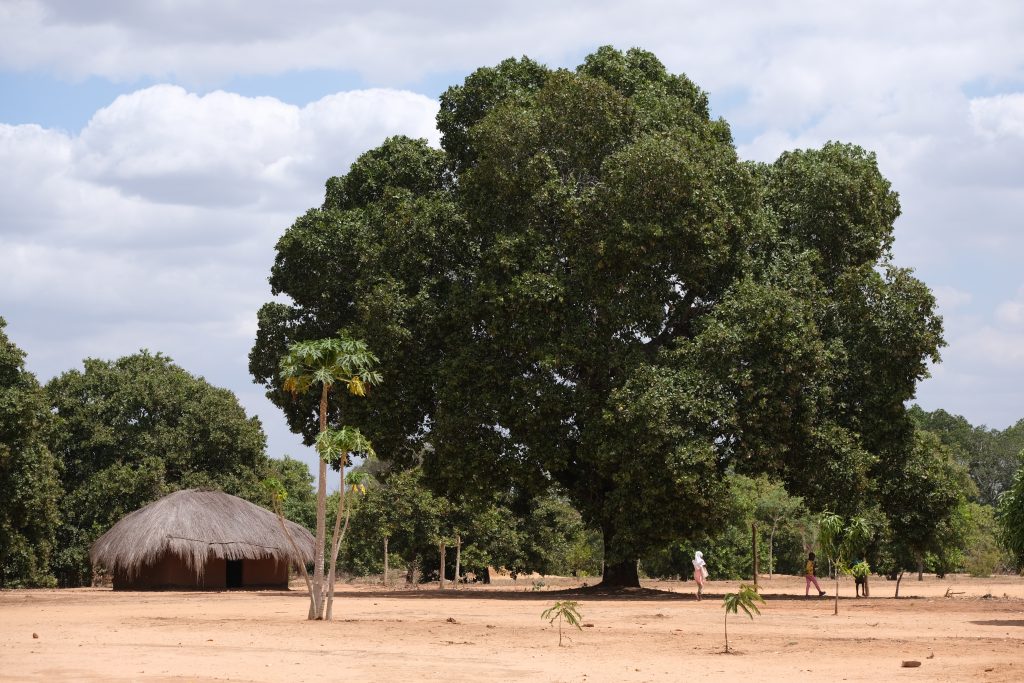A Methodology for the socio-economic impact assessment of climate services.
Sadly we know today that in the race to fight climate change, we also have to learn how to adapt to the inevitable changes to come. Climate services equip decision-makers in climate-sensitive sectors with better information to help society adapt to climate variability and change.
FOCUS Africa is developing climate services for the Southern African Development Community region in four sectors of interest, namely agriculture and food security, water, energy, and infrastructure. These services will be developed within eight case studies which seek to maximise socio-economic benefits in the Southern Africa region and potentially in the whole of Africa. As such, it was essential to define a methodology to assess the socio-economic impacts tailored to the FOCUS-Africa context.
As part of LGI’s leading role in the socio-economic impact assessment of the climate services developed under FOCUS Africa, we have developed a framework, together with our partners at BSC and WMO, to help assess the short and long term socio-economic impact of the climate services and in doing so help improve their design and maximise their impact. Our proposed methodology was developed building upon identified challenges and recommendations from state-of-the-art literature as well as experience and learnings from similar projects.

The impact assessment is constituted of three phases starting with the evaluation of the socio-economic situation for each case study context, followed by the potential anticipated impact of the climate services (‘ex-ante’), to finish with the measured impact of the climate services (‘ex-post’). It uses the Global Indicator Framework for the Sustainable Development Goals (SDGs) as a common framework to identify the thematic impact indicators and stories.
Four macro-categories emerged as cohesive impact directions to help cluster the variety of relevant SDGs and indicators, namely:
- ‘Inclusive economic growth’ (SDGs 1, 5, 8 & 10);
- ‘Food Water Energy Nexus’ (SDGs 2, 6 & 7);
- ‘Governance, Innovation, Partnership & Capacity Building’ (SDGs 4, 9, 16, 17); and
- ‘Climate Change & Disaster Resilience’ (SDGs 13, 11 & 12).
These four impact categories were used to define transversal indicators, common to all case studies, as well as specific indicators tailored to each case study, resulting in eight impact assessment grids, one for each case study.
This quantitative analysis is accompanied by a qualitative analysis through the development of eight impact pathways and impact stories, initiated in the first impact deliverable to provide an understanding of the pathway that information and activities take to transform decision-making processes and achieve socio-economic impacts. The combination of qualitative and quantitative components in the impact assessment is sought to provide the greatest value for the climate services’ designers and their users, keeping in mind the challenges posed with accessing data.
Co-design and stakeholder engagement are at the core of our methodology, which means that best efforts are placed for the proposed approach to be flexible and tailored to the reality of the local context and to the changes that can occur throughout the project, in particular in the context of the COVID-19 pandemic.
Our intention is to actively discuss insights from our socio-economic research with case study leaders as they develop their tools to help shape them, rather than merely passively reporting the impact of the project from a position of external “neutrality”. Our guiding ambition is that the impact assessment research helps support the project throughout its lifespan to maximise impact and progress towards the SDGs. Ultimately, the aim is for the methodology to be used when possible as a tool to assess the climate services socio-economic benefits for other projects, although with the required adaptations to the specific contexts.

At the end of 2021, LGI participated in a field trip to Mozambique to build a shared understanding of the socio-economic context, needs and practices of smallholder farmers, local expertise, capacity and systems in place to foster the legacy of the FOCUS Africa project outcomes.
Check out our blog post about this trip.

